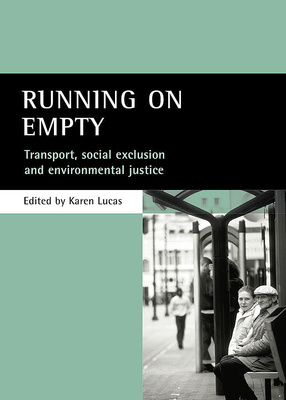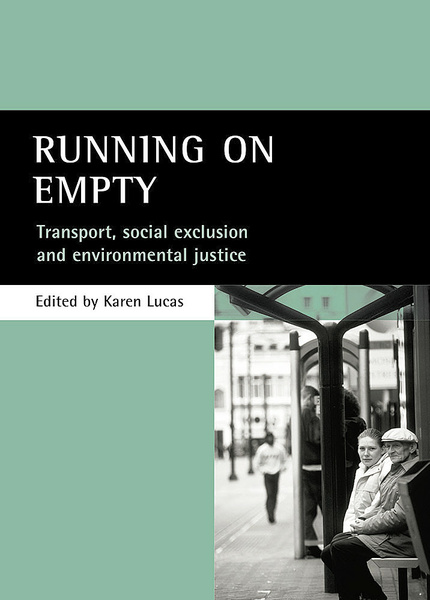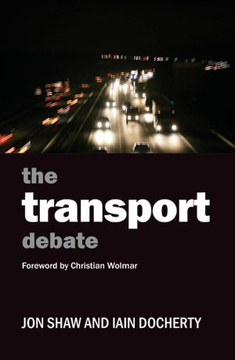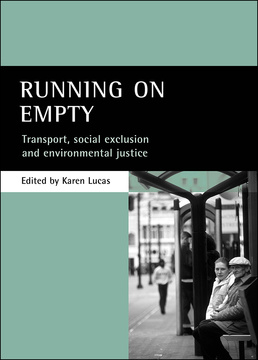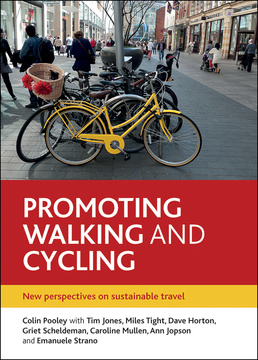Published
Oct 13, 2004Page count
320 pagesISBN
978-1861345707Dimensions
240 x 172 mmImprint
Policy PressRunning on empty argues that past failure to address fundamental inequalities in the ability of low-income households to access adequate transport has undermined effective delivery of welfare policies in the US and UK; describes the new policies and initiatives being developed to address this oversight; outlines the case for including transport as an area of social policy inquiry, identifying key factors and uses case study examples of practical initiatives from both sides of the Atlantic to draw lessons for future policy and practice. The book is aimed at students, researchers, policy makers and practitioners with an interest in understanding the social effects of transport policy. The comparison between US and UK policy and practice adds an important new dimension to those familiar with the subject, while its easy-to-read format and well-illustrated case study examples make it an ideal first text for newcomers to the field.
"With both transport and poverty and social exclusion at the top of the current political agenda, this highly topical book fulfils a pressing need for a publication that spans the transport and social policy fields." Chris Banister, School of Planning and Landscape, The University of Manchester
"This is a timely and well-conceived collection... all the chapters are worth exploring" and " The book will be an important resource for scholars in this area [transport, social exclusion and the environment] and includes material that will be of interest to students in a range of professional and academic disciplines, including community development, planning, transport economics and environmental studies. It contains potentially helpful contributions to the development of thinking in many areas and should definitely be given a place in any serious collection covering these areas of interest." Ken McCulloch, Community Development Journa
"This timely and informative book is unique in addressing issues of social exclusion and distributive justice in transportation from a comparative perspective. It contains introductory material useful in teaching and more advanced case studies useful in
research and advocacy work. It should be read by anyone seriously interested in the subject." Martin Wachs, Director, Institute of Transportation Studies, University of California, Berkeley
Dr Karen Lucas is a Senior Research Fellow with the Transport Studies Group at the University of Westminster. She recently acted as a policy advisor to the government's Social Exclusion Unit to address the issue of access to transport in the UK. She is also a member of the US Transport Research Board's Environmental Justice Task Force.
Introduction ~ Karen Lucas; Part One: Setting the context: Locating transport as a social policy problem ~ Karen Lucas; Examining the empirical evidence of transport inequality in the US and UK ~ Kelly Clifton and Karen Lucas; Part Two: The UK perspective: Transport and social exclusion ~ Karen Lucas; Ensuring access and participation in the Liverpool city region ~ Murray Grant; Halton Neighbourhood Travel Team ~ Julian Westwood; BraunstoneBus: a link with the future ~ Mike Preston; A road less travelled: case studies from community transport ~ Martin Jones; Conclusions from the UK experience ~ Karen Lucas; Part Three: The US perspective: Transportation and environmental justice ~ Lori G. Kennedy; Job isolation in the US: narrowing the gap through job access and reverse-commute programs ~ Robert Cervero; Community impact assessment for US17 ~ Anne Morris; Crossroad blues: the MTA Consent Decree and just transportation ~ Robert García and Thomas A. Rubin; Women's issues in transportation ~ Stephanie Ortoleva and Marc Brenman; Conclusions from the US experience ~ Karen Lucas; Part Four: Transferring the lessons: Towards a 'social welfare' approach to transport ~ Karen Lucas.







